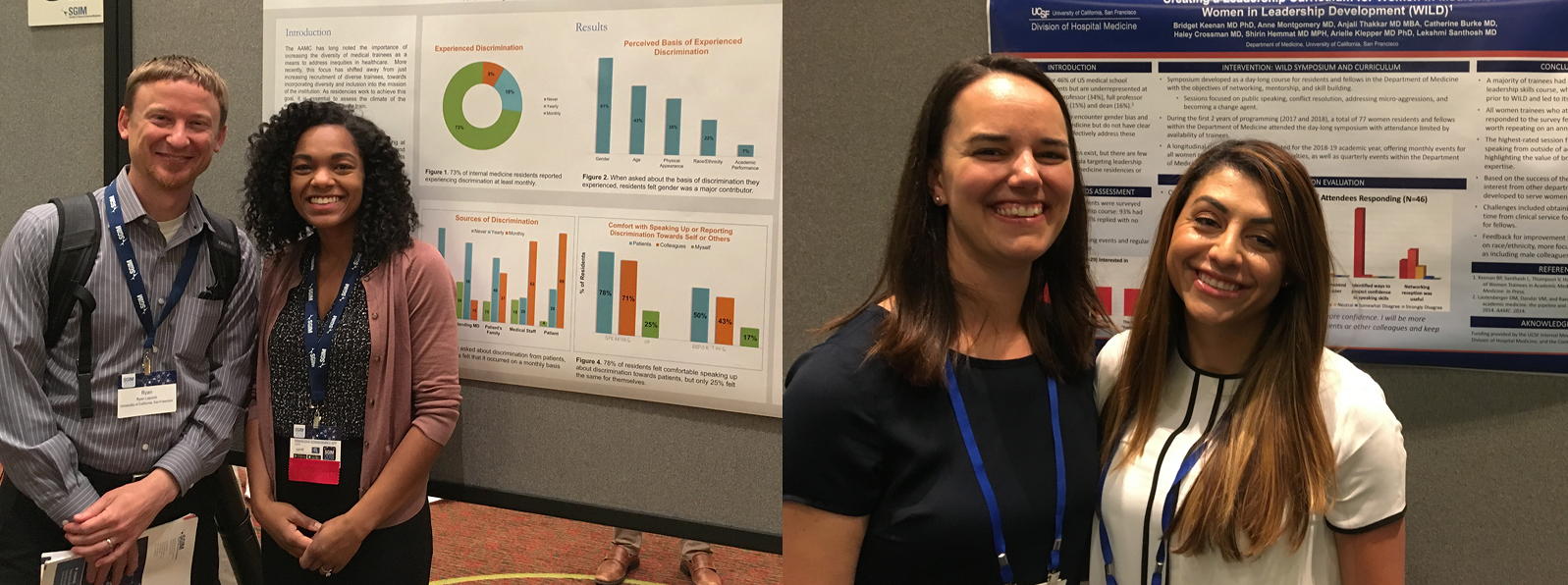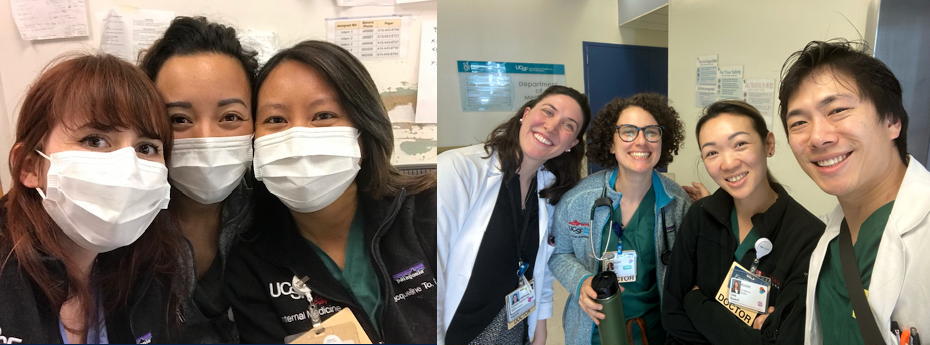Our Curriculum
Residents spend over half of their time as second and third years (PGY2 and PGY3) on ambulatory blocks. During all ambulatory (outpatient/clinic) blocks, each class is cohorted together (PGY1s on block together, PGY2s on block together, etc) forming a tight-knit learning community. While on ambulatory blocks, residents provide direct clinical care in a variety of outpatient settings and engage in small-group learning seminars with expert faculty building knowledge and skills in core and advanced topics in primary care.
Clinical Care in a Diversity of Settings:
- Residents provide primary care at the UCSF General Medicine Clinic 3 half-days every week during ambulatory blocks. During these sessions, residents serve as primary care providers (PCPs) for their diverse patient panels and receive regular feedback and mentoring from clinical faculty to continue their growth as PCPs.
- Additionally, residents develop core primary care skills in panel management and systems-based practice via a longitudinal, experiential curriculum and hone their diagnostic and clinical reasoning skills in a weekly ambulatory morning report. Residents further refine their clinical training in the ambulatory setting choosing from over 100 different elective clinic sites including internal medicine subspecialities, non-internal medicine specialties, and community-based clinics in the Bay Area and across the UCSF, ZSFG, and SFVAMC care continuum.
-
Residents can also choose to have a second clinic site caring for a specific patient population.
Social and Behavioral Medicine:
- Residents meet weekly in a small-group seminar setting to hone primary care skills co-facilitated by our Division of General Internal Medicine Director of Community, Opportunity and Access and another DGIM faculty member board-certified in Addiction Medicine. Through this interactive curriculum, residents gain knowledge and develop skills in patient-provider communication, treatment of psychiatric illness and substance use disorders, behavior change, addressing social determinants of health (including interpersonal and structural barriers to care) and provider well-being.
General Medicine Core Clinical Seminars
- Weekly core clinical seminars including procedural training in joint injection, POCUS, and LARC placement round out the UCPC primary care curriculum providing opportunities for learning together about advanced ambulatory internal medicine clinical topics and skills in a small group, case-based format with expert clinical faculty providing instruction.
Research and Scholarship:

- All residents participate (and lead one per year) in monthly Journal Clubs facilitated by a DGIM faculty member.
- With mentoring from expert faculty, residents develop and execute a team QI project to improve care for patients in our clinic and are supported to present the project locally and nationally.
- Residents can also elect to participate in the Resident Scholarship Program (RSP). The RSP curriculum includes twice-monthly interactive sessions on research methods, survey instruments, individual meetings with the clinic’s expert researchers, and group works-in-progress sessions coupled with weekly half-day protected time to do individual project work.
-
Residents are funded to attend the Society of General Internal Medicine Annual Meeting and are mentored to submit their scholarly work.
GME Pathways:
- PGY2 and PGY3 residents may elect to participate in one of the UCSF GME Pathways.

